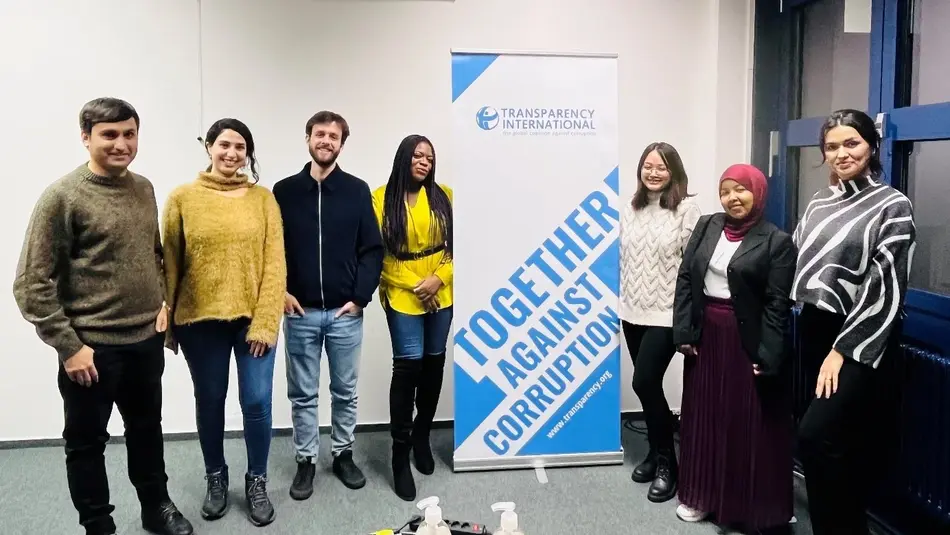The Global Anti-Corruption Campaign (GACC) Project Group visited the Transparency International Secretariat in Berlin
They were received at the Transparency International (T.I) Secretariat by Alison Matthews, the Advocacy and Legal Advice Centres (ALAC) Programme Lead who gave a general overview of the work of TI, the strategy, and the work of ALAC , the vision and the aim of the organization being to see that “government, politics, business, civil society, and the daily lives of people are free of corruption and to ensure that “power is held to account for the common Good”. She described corruption as a global phenomenon that favours a few and what the ALAC is doing in various countries through the national chapters, as experts at the ground level, to achieve change.
The second presentation was facilitated by the Senior Project Manager, Global Anti-Corruption Consortium (GACC) at T.I, Conny Abel. She gave a presentation about the work of GACC and the Organised Crime and Reporting Project (OCCRP) and other partners through their collaboration, investigation, and sharing of information to bring to light corrupt practices to ensure accountability.
Roberto Kukutschka, the Research Expert for the Corruption Perception Index (CPI), gave insights into Transparency International’s work on CPI, a tool for measuring and ranking countries based on their corruption level. He further explained how this ranking is achieved through household surveys, individual perceptions, and experiences on corruption across different sectors by TI’s Global Corruption Barometer (GCB). In addition, he shared the data and facts from the broader global corruption barometer and presented Tunisia as a case study to the group.
On a final note, they had a video presentation session on social media campaigns and how to create awareness and prompt action for engagement during the campaign. At the end of the presentations, they left with useful tips and resources that would guide their campaign in the next two months. The field trip was incredibly productive. They extend their gratitude to TI for hosting them.
Please kindly follow and support their campaign platforms on Facebook and Twitter.
Author of the article: Jolaoluwa Aina, second-year student at the Willy Brandt School of Public Policy

